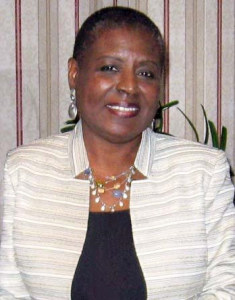
Successful re-entry is a shared responsibility

By Dorothy Inman-Johnson
Special to the Outlook
Once upon a time the U.S. corrections system had evolved to the point that rehabilitation of its inmates was a major goal of prisons. The rehabilitation included assessing education and job skills of inmates and providing opportunities for obtaining a GED, or special skills training that would prepare them for jobs once released from prison. Data shows that a majority of those sentenced to U.S. prisons have not completed high school, and would be ill-prepared for life outside of prison without some help with education and job skills while incarcerated. Prison rehabilitation programs were a recognition that successful re-entry began as people came into the prison system, not when they were preparing for release. When now-Leon County Sheriff Walt McNeil was Secretary of Florida’s Department of Corrections, he was one of Florida’s best advocates for education, job training, and re-entry programs through his words and actions. He continues to work within Leon County for a greater understanding that successful re-entry benefits both the ex-offender and the community with reunited, financially independent families, increased tax base, and reduced crime.
The Florida Legislature must also remove unnecessary obstacles to rights restoration once sentences have been completed, if the ultimate goal is to have ex-offenders return to their communities and families as full-fledged citizens with voting and civil rights.
However, successful re-entry for those being released from Florida prisons is not just the responsibility of the state. There is enough responsibility to spread around. And it cannot be based on grant funded “programs”. If so, when the grant ends, so does the program. Instead, we must use existing resources and support systems through community organizations and institutions to help these returning citizens become contributing members of our communities.
First, returning ex-offenders must be committed to their own success by seeking out and taking advantage of opportunities to improve their circumstances. There is no shame in having fallen down, but there is in refusing to get up and try again. Second, local employers must not only be willing to ban the box on job applications, but also to see the person and the skills they bring to the job instead of judging the ex-offender based only on his/her past conviction. They just need a chance.
I applaud the leadership by Bethel Baptist Church in creating the Ready4Work re-entry program that connects committed ex-offenders with education, job opportunities, and community resources for housing toward achieving financial independence. However, all community churches can be more actively involved in this process as part of the church’s mission to minister to those in need. The membership of most churches represents a cross section of the community, with various businesses (employers), educators, social services, and housing agencies/ landlords. Welcoming returning ex-offenders into the church gives them access to persons who can be beneficial in assisting them to get re-established through jobs at the church or through supportive counseling and encouragement.
A criminal conviction, without a support system, can result in indefinite homelessness. Public housing and most private housing agencies prohibit rentals to ex-offenders. Some even prohibit former convicts moving into existing housing with family members. These type housing policies make it almost impossible to get and keep jobs with no permanent residence/ address. The Bethel Baptist Ready4Work Program and the Gadsden Re-Entry Center have begun the process of developing an interagency coordinating council for re-entry services to better track success. However, much more is needed to change attitudes and create a more accepting environment generally in communities in which the ex-offender must return. To achieve that goal, community-based political, business, religious, and education leaders must create a policy board or commission to educate the community and eliminate policies that create barriers to all citizens having opportunities to live full, rich lives. The time for talk is in the past. We know what has to be done.
It is now time for action. The cost to all of us if we choose inaction is higher crime and recidivism rates, fragmentation and family instability_ with children growing up without fathers or mothers in the home; increased homelessness, high joblessness or under-employment rates, and greater dependence on tax funded social services.
When we give a hand up to those in need, we improve the quality of life for all of us, making everyone winners. This should be an easy choice.
( Send comments to dotinman-johnson@hotmail.com.)







